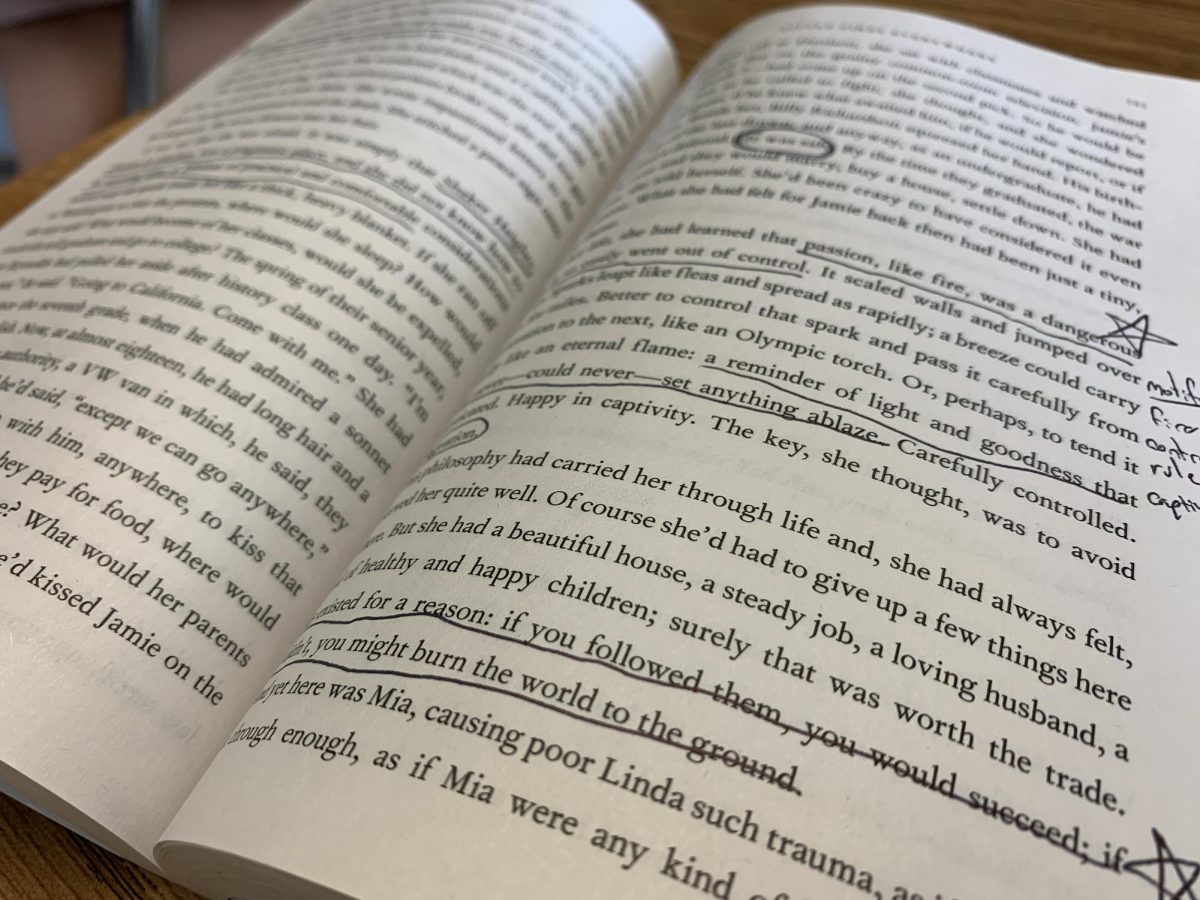With the return to a new school year, many Boulder High students (admittedly me included) find themselves in the stressful annual predicament of rushing to finish their required summer reading before classes begin. In a quick sweep of the school, the vast majority of students interviewed across all grade levels admitted to procrastinating on the reading until a few weeks–or sometimes days–before school started. This begs the question, why did so many students postpone their summer reading until the last minute?
The fact of the matter is that “summer reading” has become synonymous with “work”, damaging students’ perceptions of reading. The compulsory annotations, summarizations, and essays make reading feel like an assignment to complete rather than a book to enjoy. Turning summer reading into required homework teaches students that reading, an enjoyable and enriching activity, is a chore.
While many of the assigned summer reading novels are interesting and relevant books, students focus more on annotating the novel rather than being able to actually enjoy the literature. Kara Loran, ‘26, explained how summer reading discourages them from reading. “I love reading for fun, but summer reading does not make it fun.” Another student commented, “It just takes the fun out of reading.”
What’s worse, students get little or no choice over what they read for these summer assignments. All students in a class are prescribed the exact same book, regardless of individual interests and reading preferences. Many students are simply unable to easily engage in the summer reading novels, as the stories aren’t relevant or representative of their lives. Annabelle LeBlang, ‘25, weighed in on this, arguing that students should be able to choose what they read rather than be forced to read certain assigned novels. “Summer should be for us, and we should read our own books,” said LeBlang.
With no choice over the content, and assignments that take the joy out of reading, it’s no wonder students put off their required reading until August.
When interviewed, many students said that summer reading made them “less likely” to want to read on their own. Tyler Jacobs, ‘25, explained, “I feel like I have to prioritize the summer books, instead of like, anything I want to read.”
A quick Google search for “benefits of summer reading” returns results like “encourages lifelong reading habits” and “motivates students to read for fun,” when in reality, it seems to be doing the opposite. Required reading is reinforcing the idea that reading is boring, that reading is homework, disincentivizing students from making a habit of reading for fun.
Ms. Rossin, a tenth- and eleventh-grade language arts teacher at Boulder High, commented on the benefits that summer reading has for students. She believes that summer reading is a successful way for students to improve their reading abilities when not in school. “Should students be reading? Yes! Is reading good? Yes! Are we under-practiced? Yes! So, particularly for advanced classes, I can’t move kids as fast, skill-wise, if we are not in practice [of reading],” said Ms. Rossin. Certainly, it is important for teens to read over the summer. But is there a better way to approach summer reading, to encourage students to willingly interact and connect with a novel?
Perhaps a list of suggested summer reading, instead of one assigned book, could be more beneficial to students. Readers could select books that interest them, making it easy to not only practice their reading skills but also genuinely enjoy a new novel over the summer. At the start of the school year, our classrooms would end up with multiple perspectives on a variety of novels, rather than a hundred similar essays about the same book. Ms. Rossin agreed that it would be beneficial to let students have more authority over what they read during the summer. “I loved the books I read for summer vacation,” said Ms. Rossin, “I would love for kids to come in having read a number of things from a much bigger list, and I would just redesign my first unit.”
It is time, it seems, to reform our summer reading.



